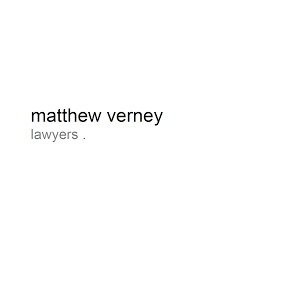Best Natural Resources Lawyers in Devonport
Share your needs with us, get contacted by law firms.
Free. Takes 2 min.
List of the best lawyers in Devonport, Australia
About Natural Resources Law in Devonport, Australia
Devonport, located in the state of Tasmania, Australia, is known for its rich natural landscapes and resources. The region's natural resources include forestry, water bodies, minerals, and agricultural land. Natural Resources Law in Devonport encompasses regulations that govern the conservation, management, and utilization of these resources. This includes legislation related to environmental protection, land use, water rights, mining, and agriculture. Ensuring sustainable practices are maintained while balancing the needs of economic development and environmental preservation is the core tenet of this legal field in Devonport.
Why You May Need a Lawyer
Engaging a lawyer with expertise in natural resources can be beneficial for several reasons. Common situations where individuals or businesses may require legal assistance include:
- Disputes over land use or water rights.
- Regulatory compliance with environmental legislation.
- Obtaining permits for mining, forestry, or agricultural activities.
- Defense against enforcement actions or penalties imposed by government bodies.
- Contract negotiations and drafting related to land leases or resource extraction deals.
- Legal challenges or public objections to development projects affecting natural resources.
Local Laws Overview
The legal framework governing natural resources in Devonport is shaped by both state and federal laws. Key aspects include:
- Environmental Management and Pollution Control Act: This legislation regulates activities that may impact the environment, focusing on preventing pollution and managing waste.
- Water Management Act: Governs water usage and rights, ensuring sustainable management and allocation of water resources.
- Land Use Planning and Approvals Act: Oversees development and land use planning, balancing land conservation with development needs.
- Forestry Regulations: Establishes guidelines for logging activities, forest conservation, and the management of state forests.
- Mineral Resources Development Act: Facilitates the sustainable development of mineral resources, including exploration and extraction processes.
Frequently Asked Questions
What is the role of a natural resources lawyer?
Natural resources lawyers offer legal advice and representation on matters related to the use and management of natural resources, such as land, water, minerals, and forests. They ensure compliance with relevant laws and assist in resolving disputes.
How do I obtain a permit for resource extraction in Devonport?
Obtaining a permit involves complying with state and federal regulations. It typically requires submitting an application to the relevant government agency, which may include environmental impact assessments and public consultations.
What are my rights in terms of water usage on my property?
Water rights in Australia are regulated by state laws, and usage often requires a license from the government. The specifics depend on the location and nature of the water source.
Can I challenge a development project that may harm the environment?
Yes, you can legally challenge such projects. This typically involves participating in public consultations, submitting objections, or initiating legal action if environmental regulations are violated.
What penalties can be imposed for non-compliance with natural resources laws?
Penalties can range from fines and mandatory rectification orders to imprisonment for severe violations. The specific penalties depend on the nature and extent of the non-compliance.
What is ‘sustainable development’ in the context of natural resources?
Sustainable development involves managing natural resources to meet current needs without compromising the ability of future generations to meet their own needs, ensuring a balance between economic growth and environmental preservation.
Do I need legal assistance for a small-scale agricultural project?
While not always necessary, legal assistance can help ensure compliance with regulations, secure proper permits, and resolve any potential land use issues, reducing the risk of future legal challenges.
How do zoning laws affect the use of my property?
Zoning laws dictate how property in specific areas can be used, such as residential, commercial, agricultural, or industrial purposes. Compliance is mandatory, and violations can result in penalties or legal actions.
Are there special considerations for Aboriginal land rights?
Yes, Aboriginal land rights are recognized under Australian law, and any activities affecting such lands require consultation and, in some cases, consent from the relevant Indigenous communities.
What should I do if I discover minerals on my property?
Discovering minerals typically requires informing the relevant governmental authority and obtaining the necessary permits or licenses before any extraction can occur. Legal guidance is recommended to navigate the process.
Additional Resources
For further information or assistance, consider reaching out to the following resources:
- Tasmanian Government Environment Protection Authority (EPA): Offers guidance on environmental regulations and pollution control.
- Tasmanian Department of Natural Resources and Environment: Provides information and supports sustainable resource management.
- Local councils: Assist with zoning regulations and development approvals.
- Legal Aid Tasmania: Provides legal support for eligible individuals in need of assistance with environmental or resource-based disputes.
Next Steps
If you require legal assistance regarding natural resources in Devonport, consider the following steps:
- Identify the specific legal issue or type of assistance you need.
- Research and contact local lawyers specializing in natural resources and environmental law.
- Prepare relevant documents and information, such as property deeds, permits, or correspondences related to your case.
- Attend consultations to discuss your situation and potential legal strategies.
- Engage a lawyer to provide representation or advice as needed focused on sustainable and compliant solutions.
Lawzana helps you find the best lawyers and law firms in Devonport through a curated and pre-screened list of qualified legal professionals. Our platform offers rankings and detailed profiles of attorneys and law firms, allowing you to compare based on practice areas, including Natural Resources, experience, and client feedback.
Each profile includes a description of the firm's areas of practice, client reviews, team members and partners, year of establishment, spoken languages, office locations, contact information, social media presence, and any published articles or resources. Most firms on our platform speak English and are experienced in both local and international legal matters.
Get a quote from top-rated law firms in Devonport, Australia — quickly, securely, and without unnecessary hassle.
Disclaimer:
The information provided on this page is for general informational purposes only and does not constitute legal advice. While we strive to ensure the accuracy and relevance of the content, legal information may change over time, and interpretations of the law can vary. You should always consult with a qualified legal professional for advice specific to your situation.
We disclaim all liability for actions taken or not taken based on the content of this page. If you believe any information is incorrect or outdated, please contact us, and we will review and update it where appropriate.









